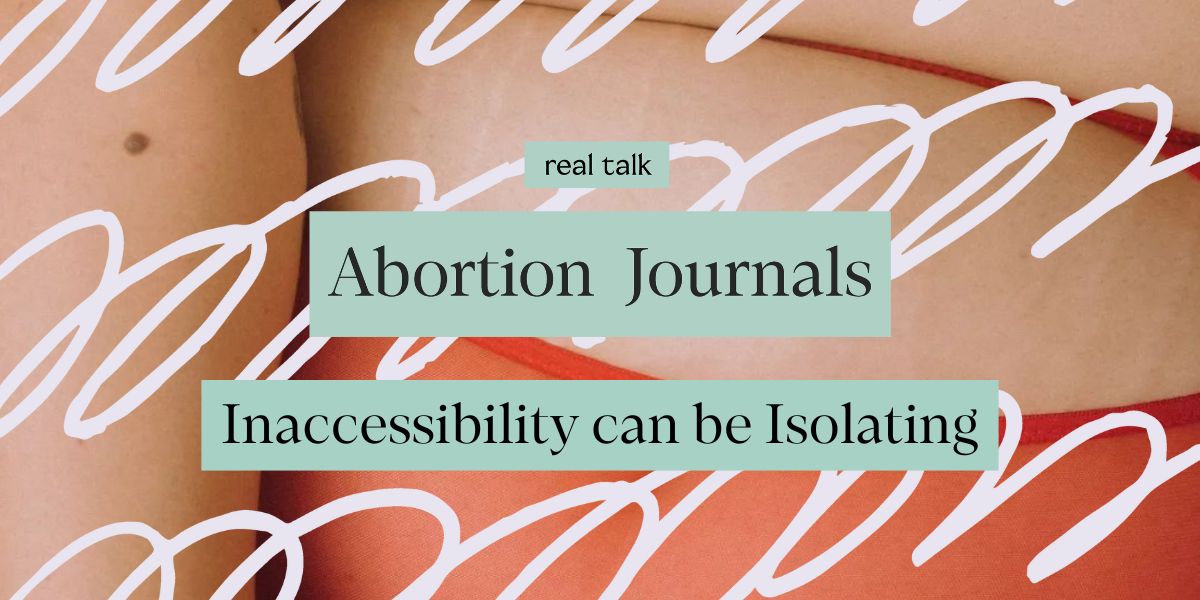Why is my period so short?

After having a regular cycle, it can be scary when something changes. What can cause changes to your period cycle? We’ll define what’s normal for your period in terms of length and intensity and some possible reasons for irregularities.
What’s a normal period cycle?
A normal menstrual cycle typically lasts 24-38 days, most commonly lasting around 28 days. A menstrual period can last up to 8 days and fall within the normal range. During your menstrual cycle, estrogen and progesterone levels fluctuate in a regular pattern. It is important to be tuned into your period, so pay attention to how your cycle works (what’s usual for you).
You can track your period and symptoms to see if your cycle is regular. There are many different ways to track your period with most smartphones having a built-in ‘health’ app and capabilities to help keep track. At minimum mark on a calendar ‘Day 1’ of your cycle, or the first day you have bleeding. Other things to pay attention to include:
- PMS and period symptoms
- The first day you bleed each month
- Bleeding heaviness
- Length of your period (how many days)
Watch for variation in your cycle and pay attention to any patterns. If you’re concerned about any factors (duration, intensity, symptoms), reach out to your primary care provider.
Shop the article
Why is my period short?
The length of a period can vary with a ‘normal’ period ranging from 2-7 days. Short periods aren’t medically uncommon. If you typically have shorter periods, here are possible reasons for shorter menstrual cycles:
- Age
- Lifestyle factors (stress, diet, exercise)
- Pregnancy or breastfeeding
- Thyroid disorders
Each of these factors can influence your hormonal balance. Hormonal levels impact how your menstrual cycle works.
Why is my period lighter than usual?
Hormone levels are often at the root of any menstrual cycle irregularities. Your age, whether you ovulate, changes in body weight, pregnancy, stress, and certain medical conditions can all impact the heaviness of your flow. Failure to ovulate could be due to lifestyle factors like stress or weight fluctuation.
Medical conditions such as polycystic ovary syndrome (PCOS) and some thyroid conditions that affect hormone levels can also affect your period flow. Talk with your primary care provider if there are any significant changes to the intensity of your menstrual period.
Why did my period show up early?
It’s normal for there to be some slight variation in the timing of your period. When you first get your period, it might take a few years before your period regulates. Then your cycle should be consistent for a while. As perimenopause begins, your period can become irregular once again.
An early period, or a period that is shorter than usual, can be a sign that your hormones are off-balance. A variety of factors can impact this, including lifestyle factors and medical conditions. These traits may also lead to shorter or lighter menstrual periods.
Changes to your menstrual cycle
Hormonal balance is at the root of most aspects of your menstrual cycle. Several factors can affect the duration and intensity of your menstrual cycle due to their impact on your hormones. These include stress levels, your diet, and levels of physical activity.pregnancy-tests
Irregularities in your menstrual cycle can also be a sign of other health conditions, including:
- Pregnancy or breastfeeding
- Polycystic ovary syndrome (PCOS)
- Pelvic inflammatory disease (PID)
- Uterine fibroids Eating disorders
- Thyroid disorders (hypothyroidism or hyperthyroidism)
- Recent illness
How does age affect your period cycle?
Your menstrual cycle is likely to change as you age. Girls typically have their first menstrual period around 12 or 13 years old and about 1.5-3 years after breast development begins. Menstruation may be irregular at first. After three years, the menstrual cycle typically evens out and is within the normal range for adult women (21-34 day cycles and a period for 2-7 days).
With the regulation of ovulation in your teens and 20s, you might experience more symptoms like PMS, cramps, or breast tenderness. The menstrual cycle stays pretty consistent in your 30s, but conditions like fibroids can cause heavier and more painful periods. Pregnancy can also bring about changes in your menstrual cycle. These changes are often, but not always, temporary usually only lasting for the duration of the pregnancy and while breastfeeding.
Perimenopause is the transitional period between a regular menstrual cycle and menopause. It usually happens in your 40s. During perimenopause, you’ll experience menstrual irregularities and menopause-like symptoms such as:
- Hot flashes and sleep problems
- Changes in mood, libido, and cholesterol
- Decrease fertility and bone loss
- Vaginal and bladder problems
Menopause happens when you haven’t had a menstrual period for a year. It typically occurs between the ages of 45-55.
Other reasons for irregularities in your bleeding
It can take a while to figure out why your menstrual cycle is irregular because several things have a similar effect on your hormonal balance. Other possible factors include:
- Polyps (noncancerous uterine growths)
- Endometrial atrophy (a condition in which the uterine lining is too thin)
- Endometrial hyperplasia (a condition in which the uterine lining is too thick)
- Endometrial cancer (cancer in the uterine lining)
Contact your primary care provider if your well-being is affected by menstrual cycle symptoms to discuss potential causes and options for treatment.
Keep Reading

What is a normal menstrual cycle?
Jan 22

Period problems: Understanding menstrual disorders
Oct 13

How common are irregular periods?
Nov 5












